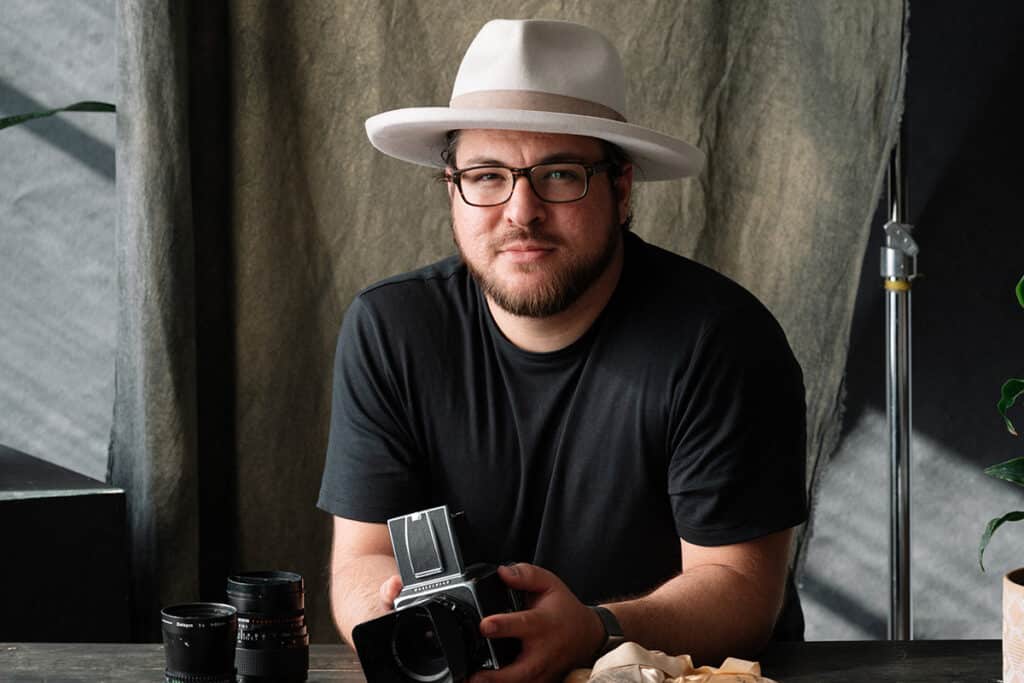The Girl Scouts are known for their patch-laden sashes and vests, displaying hard-earned pins, patches and awards for their scouting knowledge, service and activities. So it makes sense that Angela Salinas feels at home as the Chief Executive Officer of Girl Scouts of Southwest Texas. After all, she earned a few medals and awards of her own as a member of the U.S. Marine Corps.
Stepping into her office at the Sally Cheever Girl Scout Leadership Center in San Antonio, it’s clear that Salinas was no ordinary Marine. The walls, shelves and tables are lined with awards and mementos from the Corps. Logging 39 years in service and ultimately retiring as a Major General, Gen. Salinas was awarded the Navy Distinguished Service Medal, the Defense Superior Service Medal, the Legion of Merit with gold star, the Meritorious Service Medal with two gold stars, the Navy and Marine Corps Commendation Medal, the Army Commendation Medal and the Navy and Marine Corps Achievement Medal with two gold stars during her career.
The first Latina selected and promoted to the general officer ranks in the U.S. Marine Corps, at the time of her retirement, Salinas was the senior ranking woman and Hispanic in the Corps. She joined Girl Scouts of Southwest Texas in 2015, leading an organization that serves nearly 15,000 Girl Scouts in 21 counties across South Texas. When people hear her speak, they inevitably ask why she chose to lead the Girl Scouts. “I had one executive ask me, ‘How in the world did the Girl Scouts get somebody like you?’ I looked at him and said, ‘Why wouldn’t they get someone like me? I come from an organization that is a premier leadership organization, the Department of Defense. The Girl Scouts is the premier leadership organization for girls.
“This is where I choose to be because it’s important to me.”
Salinas was drawn to the possibilities that the Girl Scouts represent for girls. “The idea of building girls of courage, confidence and character. It sounds odd because it’s the mission, but if you think about it, the idea of building girls of courage, confidence and character that are going to make the world a better place—that sets the stage.”
“It’s the foundation I think we all need, especially today. The more mature I get, the more I have the opportunity to see the wave of time over the years. I can’t imagine what today’s girls are going to be facing when they’re my age. I don’t know what their stories will be like. I don’t know what their successes will be.”
She draws parallels between what Girl Scouts teaches girls and what young women need to excel in today’s world, looking back at her time in the Marine Corps and seeing young female Marines who could have used the Girl Scout influence in their lives.
“Being a Marine is not for the faint of heart. That image: the few, the proud, the Marines,” she explains.
But what she saw at the Marine Corps Recruit Depot in San Diego didn’t match that image. “I envisioned that these women would be a cut above. But I’d see these kids get off the bus and they weren’t. They were wallflowers. They were kids that were escaping. They’d been abused.”
“I used to stand there and think, ‘If there was some way to get to these kids when they were younger, instead of waiting until they’re 18, imagine how successful they could be.’”
That came rushing back to her when she received a call about joining the Girl Scouts of Southwest Texas. Not about how to build future Marines, but how to build successful women. “I thought, OK, the Lord is talking to me. This is your moment. This is your chance.”
“That’s what really moved me. And this is a brand and an organization that has proven results when you’re talking about women leaders. A program that 60 years ago influenced Madeleine Albright, Condoleezza Rice and Hillary Clinton. And the women who are going to space and that are elected officials … imagine doing it right today. What that’s going to produce for us in 20 or 30 years, that really drew me.”
Salinas herself wore the Girl Scout uniform for just a year, but it impacted her. “I remember getting to do things that I normally wouldn’t do. Having an adult leader, not someone who was your parent who tended to be judgmental when you did something, this was someone who was there to guide you and to say, ‘Do you think that’s the best you could do?’ Or having one of your peers say ‘You did good.’ It was a place where I felt good about myself.”
“Especially today, I really think we need that. I had to be 19 years old to do this [raising her hand to take an oath]. I get to be part of an organization where at the age of 6, we’re taking an oath. ‘On my honor, I will try to serve God and my country.’ Where else can you go today to help people at all times and to live by the Girl Scout law, which is good resource management, and treat people with respect … all those things?
“How do you teach respect? How do you teach acceptable behavior? The lines are just so muddled now. It’s hard for a kid to figure out what’s right.”
While the core of the Girl Scouts hasn’t changed, the organization has evolved. “This is not your mother’s or grandmother’s Girl Scouts,” explains Salinas. “This is an organization that is cutting edge. This is an organization that has everything you envision to prepare leaders. What I love about our curriculum is that it is specifically researched and designed for women, for girls, to learn. We know how to teach girls to thrive.”
Another difference in today’s Girl Scouts is the variety of ways girls can participate in the program. The makeup of the Girl Scouts of Southwest Texas is somewhat unique: half of the girls who participate are not in traditional troops, defined as a troop with a volunteer leader. “We just don’t have the volunteers,” explains Salinas. To address that need, incubator troops are led by Girl Scout staff until volunteers can be found.
And if there isn’t a troop for a girl to join, there’s a program for individual registered girls. “So if your daughter wants to be a scout and there’s not a troop near you, you could help her go through her journey on her own.”
Salinas sees Girl Scouts as a uniter and equalizer. “I love to talk about the fact that I have girls who are over on the West side who, when they participate in Girl Genius (an afterschool program run by the Girl Scouts), we feed them as soon as they get off of the bus because that’s probably going to be the only meal they’re going to get for the rest of the day. Every day, you pray that you’re making their life just a bit better.
“Then we have a troop at St. Mary’s Hall, where they are led by an assistant city attorney, a structural engineer that works for the Air Force and a doctor, and all of their parents are well-off. What I love to talk about is that with all of the other things these girls could be doing, their parents choose to create a Girl Scout troop and have their daughters in it.
“The girls on the West Side, have parents or grandparents who are taking two or three buses to get to three or four jobs to make ends meet. And then there are the girls at St. Mary’s Hall. That’s what is phenomenal about this incredible program: these girls on two different sides of town are essentially coming away with the same experience and self confidence that it’s going to take for them to be tomorrow’s leaders, whether in business, government, the military. That’s what is so powerful about all of this.”
After 39 years of going where the Marine Corps sent her—28 times in her career—Salinas found her way to San Antonio thanks to family ties. During her time in the Corps, Salinas’ mother lived with her, moving from base to base during Salinas’ service. “She came to visit and she never left,” laughs Salinas. “She fell in love with the Corps. She loved what I did. I tell people she was a better Marine than I was.” Her sister Janie ultimately joined them as a caregiver for their mother, Florita, who passed away five years ago.
Having her sister and mother with her through her career meant that no matter where she was stationed, she always had family by her side. “No matter where I was, I was always home because I’d come home and they were there. They’d be there and it was safe.”
When it was time to retire, Salinas was thinking San Diego, but San Antonio put them closer to family spread from Eagle Pass to Houston and from Dallas to the Valley. Her home in San Antonio is the epicenter, allowing everyone to come in for holidays to spend time together. And now she can’t imagine being anywhere else. “I have fallen in love with San Antonio. I really feel like I’m home.”
The Alice native is a descendant of one of the first five civilian settlers in Texas, granted land by Spain in 1767. “So I’m not native to San Antonio, but you can’t question my Texas roots.”
While the bulk of her career has been spent in a uniform, Salinas’ list of accolades includes more than military honors. Just last year, she received the San Antonio Chamber of Commerce Tribute to Women Business Leaders Hope Award and the San Antonio Business Journal Women’s Leadership Award. She is a 2016 San Antonio Women’s Hall of Fame and Hispanic Women in Leadership Hall of Fame inductee, as well as a 2016 TAMACC Woman of Distinction and 2016 Hope Hispanic Heritage recipient. Other recognition includes lifetime achievement awards from Latina Style magazine, the Congressional Hispanic Caucus Leadership Award, Women’s International Center’s Living Legacy Award, as well as being named one of 15 Phenomenal Women by Latina magazine and one of six “Power Latinas” in 2015 by Vivala.com.
And yet talking about herself doesn’t come easy. The natural storyteller instead answers questions by sharing tales of Marines she served with and the girls who she serves at Girl Scouts of Southwest Texas. “If I can tell the story of the Girl Scouts, I’ve got to tell it,” she gushes.
Rattling off story after story of the incredible life-changing projects that the scouts take on as they work to earn the Gold Award, is the highest achievement within the Girl Scouts, she positively beams. And she draws inspiration from all that they do.
When working on fundraising last summer, Salinas hit a roadblock when two donors decided to dedicate their funds elsewhere. The loss was significant and carried budget impact, but it was too late for her to cancel programs or scholarships to help balance the situation. “I remember getting in my car, practically in tears. I thought, ‘I just can’t do this.’
“Then I thought of this little girl selling cookies. Putting this goal out there and how every day, how many people would say no. If a 7-year-old can figure this out, I can figure it out.”
She went back to the office and wrote that phrase on her whiteboard. “Figure it out. That’s my inspiration because I got it from one of my girls. That’s the Girl Scout. Whether she’s 7 or 17, she figures it out. That’s the skill set we instill in the girls and that’s where I get my inspiration.”
“There’s a way, you just have to figure it out. There are too many ways, too many excuses, too many ways to say it’s hard. But somebody’s always a loser when you give up. Whether it’s your organization or yourself, sometimes we have to accept this might be the best of the solutions. This might be the best right now. And then be able to move on from that.”
And that’s the advice she gives to other women. “Figure it out. I think that we all want the solutions When you go to War College, they use to have ‘the yellows’—the paper with the answer on it. So that’s what I always refer to: There’s no yellow sheet, there’s no easy answer. That’s part of life, that’s part of being an adult. Part of being a leader is the ability to make decisions. There’s no pat answer.”
A piece of advice that she carries with her came from her days in the Corps. “Pick your battles. Every time I felt wronged, I wanted to be the defender of everybody. But the reality is, if you do it every single time, you’re crying wolf. And when it’s really important, you’re just going to be white noise to somebody. You need to be able to choose. Is it worth it? Is it better to win the battle or do you want to win the war?”
Another lesson that she carries with her came after a bad day. She went home grumbling about the person who had contributed to it. “I was lamenting about the jerk, going on and on. My family sat there nodding their heads, listening to me. Then I thought, ‘This is the stupidest thing I could be doing.’ This guy, who is probably not giving me a second thought, is dominating my time with my family, the people that matter.
“So I don’t take anything home. It taught me that when I’m home, I’m home. I don’t pick up the phone. I don’t focus on work.”
However, the habitual early riser does use her early morning hours to help focus for the day. After years of getting up at 4:30 to work out—or do “PT” in military terms—her body won’t let her stay in bed. It’s a habit she feels has contributed to her success. “That quiet time allows me to get ready, set my course for the day, think out loud and get that center.”
Part of that center is highlighting the stories of the Girls Scouts: changing the perception of what these girls can do—and what Girl Scouts can do for them. “People still see Girl Scouts as cookies. But what cookies really are is entrepreneurial. It’s a business. The accountability, the logistics. The self confidence it takes to go up to a group of strangers and ask if they would like to buy cookies. And when they say no, to go back to my booth because my commitment is to sell 200 boxes and the rest of my troop is counting on me. Where else do you teach resilience without having an adverse environment?”
Or learn as Salinas has on her whiteboard, “Figure it out.”
By Dawn Robinette
Photography by Jason Roberts










One Response